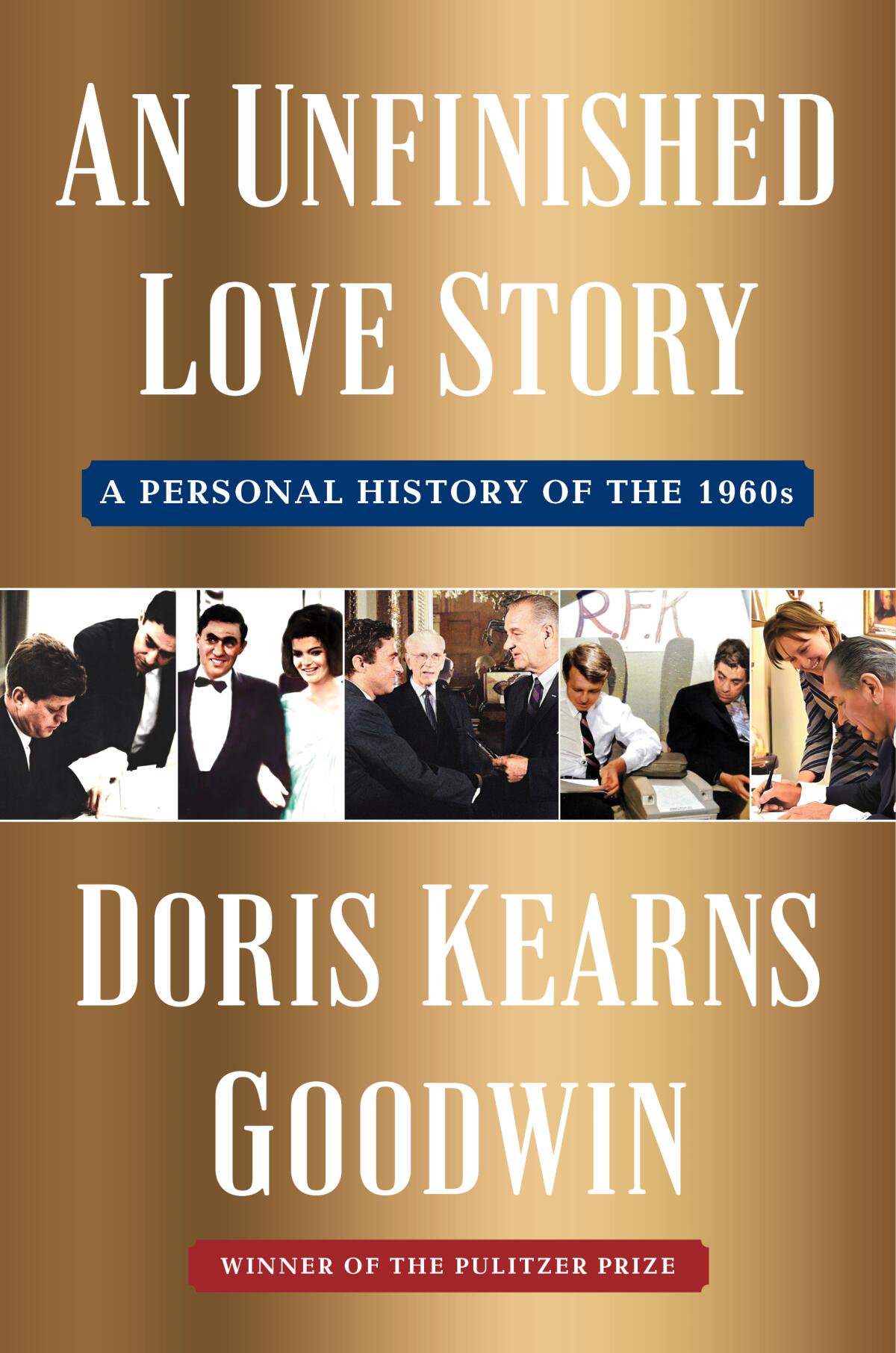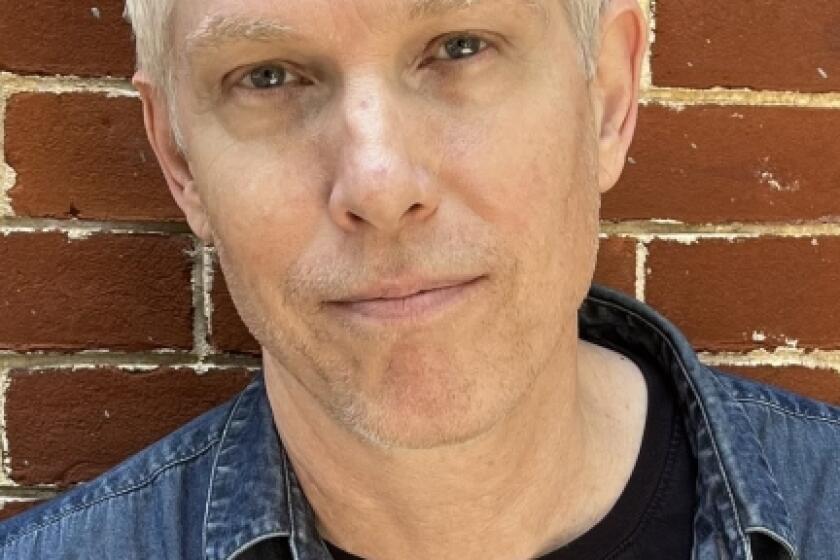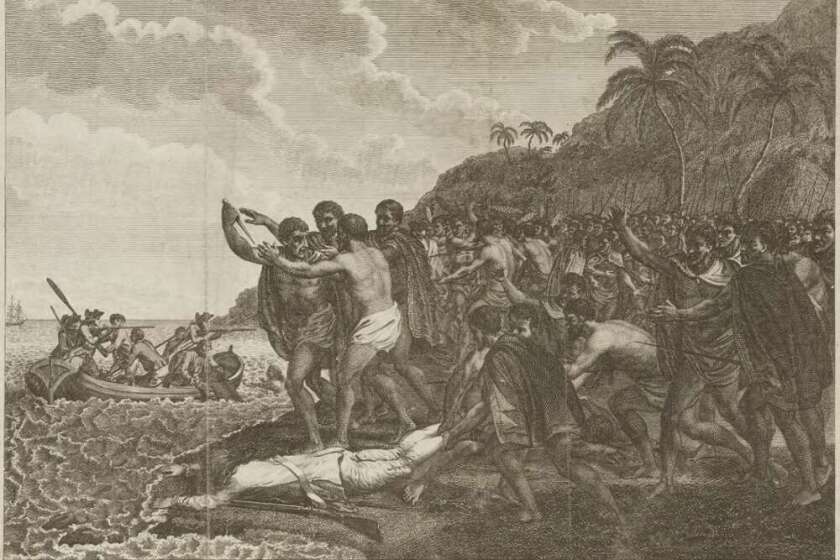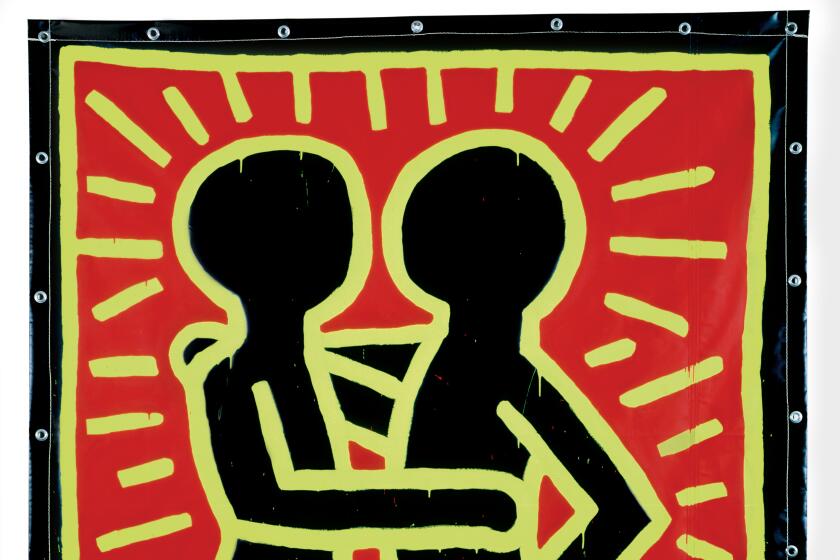Doris Kearns Goodwin and husband Dick Goodwin lived, observed, created and chronicled the 1960s

- Share via
Book Review
An Unfinished Love Story: A Personal History of the 1960s
By Doris Kearns Goodwin
Simon & Schuster: 480 pages, $35
If you buy books linked on our site, The Times may earn a commission from Bookshop.org, whose fees support independent bookstores.
“An Unfinished Love Story: A Personal History of the 1960s” isn’t precisely the book that presidential historian Doris Kearns Goodwin set out to write.
Dominating this often fascinating volume is both the colossal presence and the sudden absence of Richard “Dick” Goodwin, Doris’ late husband, whose speechwriting talents defined some of the most memorable moments of the 1960s. The couple’s aim was to co-write a book based on his extraordinary archive — 300 boxes! — of personal papers and curios, from voluminous speech drafts to a shattered police club from the 1968 Democratic Convention in Chicago.
Husband and wife spent years perusing and discussing those treasures, an effort short-circuited by his death in 2018, at 86, of cancer. Amid her grief and a move from their rambling home in Concord, Mass., to a Boston condo, Goodwin took up the project on her own.

She describes the result as a hybrid of history, biography and memoir. At its most poignant, “An Unfinished Love Story” is, as the title indicates, an account of personal loss. It also turns out to be a reflection on the process of constructing history, suggesting how time, perspective and stories left unwritten can shape our view of the past.
Max Ludington’s ‘Thorn Tree’ suggests the divisions of the 1960s await a moment to reemerge. But strong writing is weighed down by tonal and structural problems.
Goodwin, the author of award-winning biographies of Lyndon B. Johnson, Franklin and Eleanor Roosevelt, Abraham Lincoln, Theodore Roosevelt and others, has a nice touch as a storyteller. Here she successfully navigates the awkward feat of weaving together the couple’s gently probing conversations, her husband’s archival documentation, other historical sources and her own reporting.
“An Unfinished Love Story” offers a bird’s-eye view of familiar events, and of a decade marked by both idealism and political violence. “Too often,” Goodwin writes, with her characteristic optimism, “memories of assassination, violence, and social turmoil have obscured the greatest illumination of the Sixties, the spark of communal idealism and belief that kindled social justice and love for a more inclusive vision of America.”
While arguing for this rosier perspective, the book provides nuance and detail on matters such as the origins of the Peace Corps and the Alliance for Progress, Robert F. Kennedy’s private agonies over whether to challenge LBJ for the Democratic presidential nomination in 1968, and Jackie Kennedy’s emotional struggles after her husband’s 1963 assassination. In a 1966 letter from Hawaii, Jackie addresses Dick Goodwin, her close friend, as a fellow “lost soul” and complains of “memories that drag you down into a life that can never be the same.” That is a sentiment that Doris Kearns Goodwin understands.
In Hampton Sides’ telling, this explorer’s final mission, ending with his death on the shores of Hawaii’s Big Island, has room for both condemnation and celebration.
She and the then-married Goodwin — with his “curly, disheveled black hair,” “thick, unruly eyebrows” and “pockmarked face” — met at Harvard in 1972, where she taught a popular course on the American presidency. He had left the Johnson administration in 1965, three years before she joined it, and had become disillusioned with the Vietnam War. Despite having penned her own antiwar piece for the New Republic, she would become an LBJ confidante, an aide on his presidential memoirs and a lifelong admirer.
Not just a speechwriter but a policy advisor and political strategist, Dick Goodwin enjoyed a Zelig-like march through 20th century American history. President of the Harvard Law Review and law clerk to U.S. Supreme Court Justice Felix Frankfurter, Goodwin worked for two presidents, John F. Kennedy and Johnson, and several would-be presidents, including Eugene McCarthy and Robert F. Kennedy. He later wrote the concession speech that Al Gore delivered after the Supreme Court stopped the recount of the 2000 presidential election vote in Florida.
According to his widow, Goodwin idolized the coolly self-possessed JFK, fused with LBJ, regarded McCarthy as “the most original mind” he’d encountered in politics and adored RFK, his best friend of the bunch. (No mention is made here of the seamier side of these politicians’ lives, or how their sexual indiscretions bear on their legacies.)
Nearly every Democratic leader seems to have sought the services of the brilliant, cigar-smoking, workaholic Goodwin. But, as “An Unfinished Love Story” makes clear, he was more than a pen for hire. Goodwin had passionately held views about civil rights, the alleviation of poverty and other issues. As Johnson’s principal speechwriter, he helped fashion both the title and the programs of the Great Society. He was responsible for LBJ’s single most powerful speech, on behalf of the 1965 Voting Rights Act, which coopted the anthem of the civil rights movement: “We Shall Overcome.”
Biographer Brad Gooch’s “Radiant” reveals how much life and creativity artist Keith Haring packed into 31 years before he died of AIDS.
Goodwin left the Johnson administration, against the president’s wishes, to pursue a solo writing career. Over time, his public stance against American involvement in Vietnam pitted him against his former boss. “It’s like being bitten by your own dog,” Johnson said of Goodwin’s defection.
Goodwin was, at heart, deeply loyal, his widow suggests, even if he sometimes chose loyalty to principles over personal attachments. On the other hand, when a previously hesitant Bobby Kennedy entered the 1968 Democratic primary race against McCarthy, friendship prevailed, and Goodwin switched sides, as he had earlier warned McCarthy he would. The RFK assassination, following victory in the California Democratic primary (and Martin Luther King Jr.’s murder earlier that year), was shattering for Goodwin, as for so many others.
“An Unfinished Love Story” is at its most moving when it touches on the Goodwins’ long, happy, occasionally contentious marriage; its bumpy origins (after becoming a widower, he wasn’t as ready to commit as she was); and his emotional farewell. Always attuned to relationships, Goodwin is an astute chronicler of her own.
Beyond underlining the brighter side of the 1960s, the archive and the conversations it prompted changed the couple’s views of the two presidents they served. She gained a deeper appreciation of the impact of Kennedy’s idealism, she writes, while her husband moderated his long-standing bitterness toward Johnson. Embedded in that rapprochement is an unstated hope: that more knowledge and informed debate might somehow ease our country’s current political polarization as well.
Julia M. Klein is a cultural reporter and critic in Philadelphia.
More to Read
A cure for the common opinion
Get thought-provoking perspectives with our weekly newsletter.
You may occasionally receive promotional content from the Los Angeles Times.













